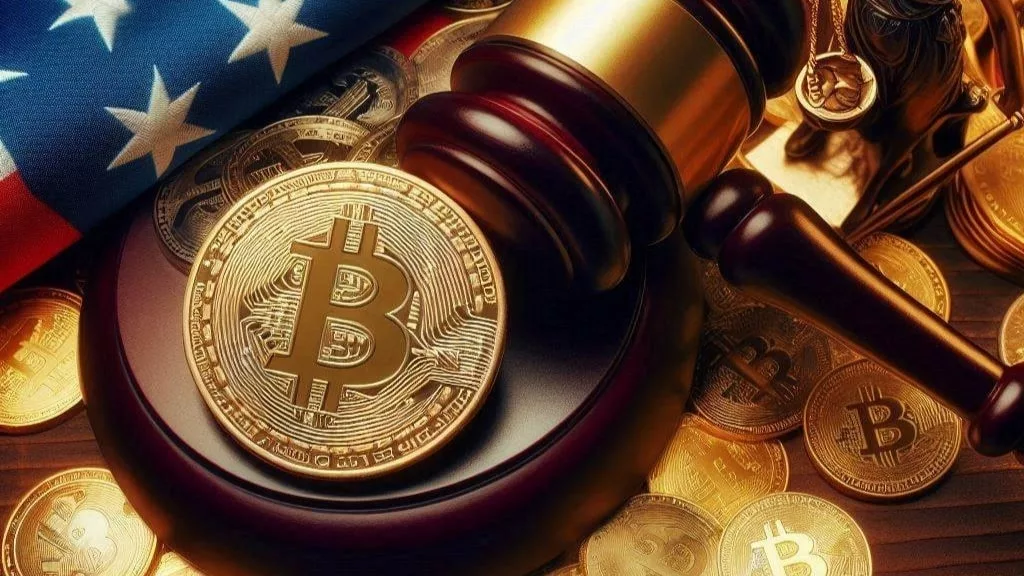
The U.S. Supreme Court has concluded a lengthy legal dispute surrounding 69,370 Bitcoin seized from the notorious Silk Road dark web marketplace. These bitcoins, valued at approximately $4.4 billion, are now set to be auctioned off by the government. Let’s delve into the details of this landmark case and explore the potential implications for the crypto market and the U.S. political scene.
The legal struggle revolved around a claim made by Battle Born Investments, a company that asserted it had rightful ownership of the seized Bitcoin. Their argument was based on the premise that they acquired the assets through a bankruptcy estate linked to a man named Raymond Ngan. Battle Born claimed that Ngan was “Individual X,” a hacker who had previously stolen Bitcoin from Silk Road and later surrendered the funds to authorities.
Despite their efforts, both federal and appellate courts dismissed Battle Born’s claims, paving the way for the Supreme Court’s recent decision not to accept the case. This dismissal effectively clears the path for the U.S. government to sell the seized Bitcoin.
To fully grasp the significance of this legal victory, it’s essential to look back at the events surrounding the Silk Road marketplace. Founded by Ross Ulbricht in 2011, Silk Road became infamous as a platform for illicit activities, allowing users to purchase illegal goods ranging from drugs to weapons using Bitcoin. The site was hosted on the Tor network, which anonymized user identities and transactions.
In 2013, the FBI shut down Silk Road and arrested Ulbricht, marking a turning point in the battle against online criminal marketplaces. The Bitcoin seized during this operation remained under government control, leading to the current situation. Complicating matters, the IRS later traced some transactions to “Individual X,” who had stolen Bitcoin from Silk Road before authorities intervened, resulting in what is now the largest cryptocurrency seizure in history.
With the Supreme Court’s refusal to hear Battle Born’s case, the U.S. government is now ready to move forward with the auction of the seized Bitcoin. The U.S. Marshals Service will oversee this sale, and some of the funds have reportedly already been transferred to Coinbase Prime, indicating preparations for the auction are underway.
This auction could have far-reaching implications, not only for the cryptocurrency market but also for the broader political landscape in the U.S. The sheer volume of Bitcoin up for grabs may influence market dynamics, potentially impacting prices and trading strategies.
During the recent Bitcoin Conference 2024 held in Nashville, former President Donald Trump shared his thoughts on the seized Bitcoin. He proposed that instead of auctioning off these assets, the U.S. should consider creating a “strategic Bitcoin reserve.” Trump suggested that the current administration could learn from Germany, which has opted to hold onto seized Bitcoin rather than selling it.
This proposal raises interesting questions about the future of Bitcoin as an asset class and how governments might approach cryptocurrency management. The idea of a national reserve could reflect a growing acceptance of Bitcoin within mainstream finance and politics, potentially legitimizing its status as a viable asset.
The upcoming auction of $4.4 billion in Bitcoin could significantly affect the cryptocurrency market. Here are some potential impacts:
As the U.S. government prepares to auction $4.4 billion worth of Bitcoin, the implications of this decision extend beyond mere asset liquidation. The legal battles that have unfolded, coupled with the political discourse surrounding cryptocurrency, mark a pivotal moment for both Bitcoin and U.S. policy on digital assets.



Get the latest Crypto & Blockchain News in your inbox.